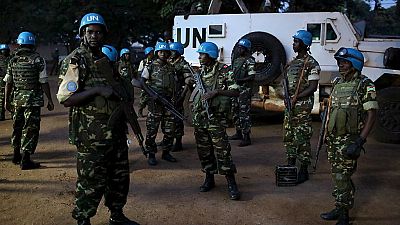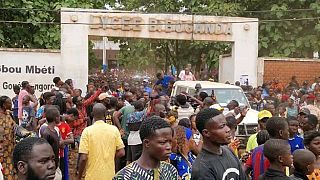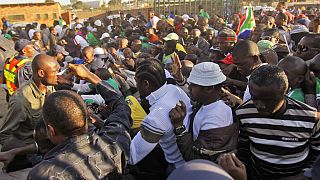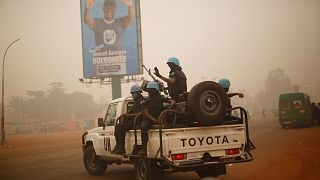Central African Republic
The United Nations Human Rights chief has warned that security and human rights atmosphere in the Central Africa Republic could start to deteriorate following a series of incidents in the capital Bangui and other areas.
According to Zeid Ra’ad Al Hussein, “While 2016 began on a positive note, with the successful holding of elections in February, recent events in Bangui and in several parts of the country make me fear a re-escalation in violence in the coming months.’‘
#CAR: Security & #humanrights situation may be starting to deteriorate again. Full story: https://t.co/riblhdYEnx pic.twitter.com/SHeN0hxqwF
— UN Human Rights (@UNHumanRights) July 4, 2016
He therefore called for the urgent demilitarization of armed groups, which he says ‘‘remain far too powerful and retain the potential to reignite the conflict – as well as to restore State authority and rule of law, and to ensure the security of all civilians.’‘
Even though there is a functional government under the leadership of Faustin Archange Touadera, the capital of the country has been restive since the middle of June. There were reports of clashes between MINUSCA (UN forces) and armed groups leading to deaths on June 20.
On the same day an unarmed group of security officials were rescued by MINUSCA at hands of an irate crowd. A Senegalese peacekeeper was also killed by unidentified armed men.
Clashes outside Bangui have been equally deadly with ex-Seleka and anti-Balaka rebels clash leading to 17 deaths. Other armed elements and nomads in the region have also clashed resulting in loss of lives.
“The steps taken by the authorities to establish the Special Criminal Court and the adoption of a new Constitution are promising, but I remain concerned at the large number of arbitrary arrests and detentions by security forces,” the UN human rights chief said.
“More resources and political will are needed to ensure proper justice for past and current crimes and human rights violations,” he added.
The country suffered the worst crisis in its history in early 2013 when the mainly Muslim Seleka fighters toppled the then president. Christian so-called anti-Balaka militias responded by attacking the Muslim minority.
The clashes have led to a humanitarian crisis with locals fleeing the conflict to neighbouring countries. Thousands of lives were lost and many more people displaced by the fighting that ended almost a year ago.














Go to video
ICC warns of a dire humanitarian crisis in Sudan as the war rages on
02:35
Central African Republic's major rebel groups to disarm, dissolve
02:06
UN report reveals 4.6 million people struggling with food insecurity
01:22
World will have to learn to live with heatwaves, UN says
01:39
Sustainable development financing conference opens in Seville
01:35
UN and Haitian officials mark one year since Kenyan police arrived to support security efforts